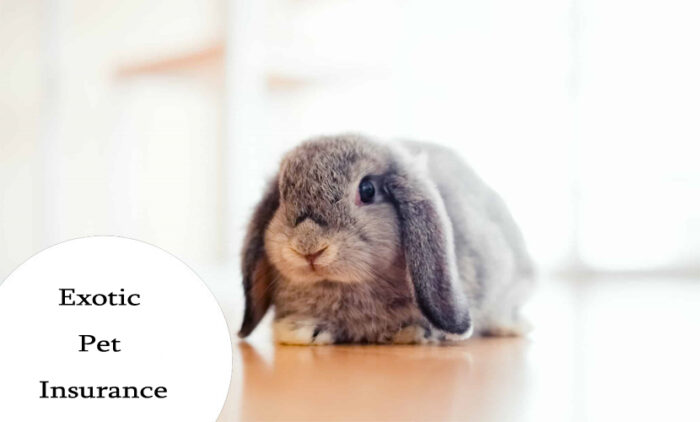Exotic pet insurance refers to a specialized type of health coverage designed specifically for unconventional animals that are not considered traditional household pets.

This insurance policy is intended to provide financial assistance for medical expenses incurred by veterinary care for exotic pets.
Exotic pets are those animals that are not commonly kept as pets, such as amphibians, birds, fish, reptiles, and small mammals.
These animals often require specialized veterinary care due to their unique needs and health concerns, which are not typically encountered with domestic pets.
Exotic pet insurance is an essential investment for pet owners who have exotic animals, as it helps to cover the costs of medical treatments, surgeries, and other veterinary services that may be necessary to maintain the health and well-being of these unique creatures.
By having this insurance policy in place, pet owners can have peace of mind knowing that they are financially prepared for any unexpected medical expenses that may arise in the care of their exotic pets.
How Does Exotic Pet Insurance Work?
Exotic pet insurance, akin to standard pet insurance, follows a reimbursement-based model. Pet owners cover their exotic pet’s veterinary expenses upfront, then file a claim with their insurer.
Upon approval, the insurer reimburses the owner, deducting any applicable deductible and coinsurance.
This process involves submitting invoices and medical records for review. Reimbursement timelines can vary, necessitating preparedness for potential delays.
Selecting a policy with suitable coverage limits and deductibles is crucial. This approach offers financial security and assurance for exotic pet owners, ensuring they are equipped to handle unforeseen medical costs effectively and responsibly.
Types Of Exotic Pet Insurance
Here are some of the different types of exotic pet insurance:
Avian And Exotic Pet Accident And Illness Pet Insurance Plan
This insurance plan covers veterinary bills for accidents and illnesses that may affect exotic pets, including avian species.
Accidents that may be covered include soft tissue trauma, while illnesses that may be covered include feather loss and arthritis.
Reimbursement-Based Coverage
Nationwide’s exotic pet insurance operates on a reimbursement basis. This means that pet owners are responsible for paying upfront for their exotic pet’s veterinary bills and then submitting a claim to the insurance company.
If the expenses are covered by the policy, the insurer will reimburse the pet owner for the costs incurred.
These types of insurance plans provide pet owners with financial assistance to cover unexpected medical expenses that may arise in the care of their unique and unconventional pets.
By having this insurance coverage, pet owners can ensure that their exotic pets receive the necessary medical care they need without worrying about the financial burden of veterinary bills.
What Does Exotic Pet Insurance Cover?
Exotic pet insurance includes coverage for veterinary expenses related to accidents and illnesses. Here are some examples of what this insurance covers:
Accidents
- Broken bones.
- Soft tissue trauma.
- Sprains.
- Lacerations.
- Poisoning.
Illnesses
- Allergies.
- Arthritis.
- Cancer.
- Diarrhea.
- Ear infections.
- Eye injuries.
- Feather picking or loss.
- Foreign body ingestion.
- Internal parasites.
- Mouth rot.
- Overgrown teeth.
- Upper respiratory infection.
Veterinary Services
- Avian-specific diagnostic tests.
- Diagnostic tests such as blood tests, biopsies, radiographs, and urinalysis.
- Hospitalizations.
- Prescription medication.
- Treatments.
- Surgeries.
It’s important to note that routine care, such as annual vet exams and vaccinations, is not covered by this insurance. However, pet wellness plans may be available as a stand-alone plan to cover these costs. For example, Pet Assure’s “Mint Wellness” plan covers vet exam fees and other types of expenses for all types of pets, including exotic pets.
What Does Exotic Pet Insurance Not Cover?
There are certain things this insurance doesn’t cover. Here are some common exclusions:
- Boarding or transport expenses.
- Breeding costs.
- Congenital or hereditary defects or diseases.
- Costs unrelated to veterinary care.
- Diseases preventable by vaccines.
- Elective procedures such as wing clipping and nail trims.
- Food and supplements such as vitamins.
- Pre-existing conditions, which are injuries or illnesses that occurred before you purchase this insurance plan.
- Routine care, examinations, and vaccinations.
- Surgical removal of reproductive organs, expression, or removal of scent glands.
Additionally, certain types of exotic pets may not be covered by insurance, including:
- Any species that requires a license, permit, or registration by federal or state law.
- Any species that is illegal to own under federal or state law.
- Endangered or threatened species.
- Hybrids of domesticated pets with wild or non-domesticated species.
- Species that are kept in flocks or on display.
- Venomous or poisonous species.
It’s essential to understand what is and isn’t covered to ensure that you have the appropriate insurance coverage for your pet’s specific needs.
How Much Does It Cost?
According to information provided on Nationwide’s website, the price of this insurance falls below $21 per month. However, the actual cost of your insurance can vary based on factors like:
- The specific type of pet you have.
- The chosen annual coverage limit.
- Your geographical location.
Is Pet Insurance For Exotic Animals Worth It?
This type of insurance is not a strict requirement, but it serves as a valuable means to prepare for unforeseen veterinary expenses.
For instance, if your capybara consumes a foreign object, the resulting emergency surgery could incur substantial costs at the veterinary clinic.
Without insurance, you would be responsible for settling the veterinary bills personally.
To ascertain whether this insurance is a worthwhile investment, evaluate the potential impact of a significant veterinary bill on your financial situation relative to the annual cost of the insurance plan.
By doing so, you can make an informed decision that aligns with your financial capabilities and priorities.
Frequently Asked Questions
What Types Of Exotic Pets Are Eligible For Insurance Coverage?
Exotic pet insurance policies typically cover a wide range of animals, including birds, reptiles, amphibians, fish, and small mammals such as ferrets, rabbits, and sugar gliders.
However, the specific types of animals covered may vary by insurance provider, so it’s essential to check with the insurer before purchasing a policy.
Can I Choose My Exotic Pet’s Veterinarian With An Exotic Pet Insurance Policy?
Yes, most policies allow policyholders to choose their veterinarian, as long as the veterinarian is licensed and practicing within the policy’s coverage area.
This means that you can continue to use your preferred exotic veterinarian for your pet’s care.
Does Exotic Pet Insurance Cover Preventative Care?
Some exotic pet insurance policies may offer coverage for preventative care, such as annual wellness exams, vaccinations, and parasite prevention.
However, this coverage may be optional and may require an additional premium. Additionally, routine care may not be covered under accident and illness policies but may be available under separate wellness plans.
It’s essential to check with the insurer to determine the specific coverage options available for preventative care.



